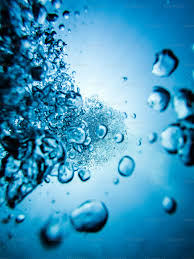Mineralised Fluoride-Free Water and Avoiding Sports Injuries
This foundational article addresses water quality as a critical factor in athletic performance and injury prevention. Russ explains the importance of mineralised, fluoride-free water for athletes, detailing optimal hydration strategies for pre-, during, and post-activity phases. Covers water chemistry, mineral requirements, practical protocols, and the direct connection between proper hydration and tissue resilience, joint function, and cellular recovery. Key Takeaways: Water quality importance, mineral requirements, hydration protocols, injury prevention benefits, practical implementation strategies.
INJURY RECOVERYSPORTS
5/11/20254 min read


Mineralised Fluoride-Free Water and Avoiding Sports Injuries
By Russ Maher RN BSc (Hons) Cardiac, BeingWELL.Me Founder
The Foundation of Athletic Performance: Optimal Hydration
Throughout my nursing career and particularly while working with athletes, I've witnessed how something as simple as water quality can dramatically impact performance and injury prevention. Let me share why mineralised, fluoride-free water deserves your attention as an athlete.
The Hidden Costs of Poor Hydration
Many athletes focus on quantity of water intake while overlooking quality. Suboptimal hydration can contribute to:
Muscle cramping and increased injury risk
Delayed wound healing and tissue repair
Reduced joint lubrication
Impaired cellular communication
Decreased blood v
Volume affecting oxygen delivery
Understanding Water Chemistry for Athlete
Mineral Content Matters
Sodium: Essential for muscle contraction and nerve transmission
Magnesium: Critical for protein synthesis and energy production
Calcium: Supports muscle function and bone density
Potassium: Regulates fluid balance and prevents cramping
Celtic Sea Salt: The Performance Enhancer
Unlike refined table salt, Celtic sea salt retains its natural mineral profile:
Over 82 trace minerals and elements
Magnesium chloride: Supports muscle relaxation and recovery
Calcium chloride: Aids in muscle contraction and bone health
Potassium chloride: Maintains cellular hydration and prevents cramping
Natural sulfates: Support detoxification and joint health
Iron: Essential for oxygen transport
Zinc: Supports immune function and tissue repair
Benefits for Athletes:
Rapid electrolyte replacement without synthetic additives
Improved cellular hydration at the mitochondrial level
Natural alkalinity helps buffer lactic acid
Supports adrenal function during intense training
Enhances nutrient absorption in the digestive tract
Reduces muscle cramping and spasms
Supports proper pH balance for optimal enzymatic function
The Fluoride Controversy in Sports
While municipal water fluoridation aims to prevent dental issues, athletes may benefit from fluoride-free options because:
Excessive fluoride can interfere with thyroid function
May impact calcium utilization affecting bone health
Could influence enzyme function critical for energy metabolism
Allows for precise mineral control in hydration strategies
Optimal Water Types for Athletes
1. Structured Water with Celtic Sea Salt
Enhanced molecular organization
Add 1/4 teaspoon Celtic sea salt per liter
Provides 82+ trace minerals for cellular function
May reduce acidosis during intense training
Supports optimal absorption and hydration
2. Mineral-Rich Spring Water + Celtic Sea Salt
Natural electrolyte profile enhanced with Celtic salt
Often fluoride-free by nature
Provides comprehensive mineral support
Ideal for endurance athletes needing sustained electrolytes
3. Filtered and Remineralized Water + Celtic Sea Salt
Removes contaminants including fluoride
Allows customization of mineral content
Celtic salt provides natural broad-spectrum electrolytes
Most versatile option for sport-specific needs
Cost-effective long-term option
4. Advanced Electrolyte Protocol
Base: Filtered, mineralised water
Add: 1/4 teaspoon Celtic sea salt per liter
Optional: Squeeze of lemon for vitamin C and alkalinity
For intense sessions: Increase to 1/2 teaspoon per liter
Practical Hydration Strategy
Pre-Training/Competition:
500ml of mineralised water with 1/4 teaspoon Celtic sea salt 2 hours before
250ml with Celtic salt 30 minutes before activity
Ensure proper mineral balance is established
During Activity:
150-250ml every 15-20 minutes
For sessions under 60 minutes: Plain mineralised water
For sessions over 60 minutes: Add 1/2 teaspoon Celtic sea salt per liter
Hot conditions: Increase Celtic salt to 3/4 teaspoon per liter
Monitor urine color and frequency
Post-Activity:
Replace 150% of fluid lost through sweat
First liter should contain 1/2 teaspoon Celtic sea salt
Subsequent hydration can reduce to 1/4 teaspoon per liter
Continue hydration for 4-6 hours post-exercise
Include Celtic salt to accelerate electrolyte replacement
Celtic Sea Salt Daily Protocol:
Morning: 1/2 teaspoon in 500ml warm water upon waking
Training: 1/4-3/4 teaspoon per liter based on intensity
Evening: 1/4 teaspoon in final hydration before bed
Total daily: 1-2 teaspoons depending on training volume
The Injury Prevention Connection
Proper hydration with quality water supports:
1. Tissue Elasticity
Better-hydrated tissues are more resilient
Reduces risk of muscle strains and tears
Supports healthy connective tissue
2. Joint Function
Improved synovial fluid production
Better shock absorption
Reduced wear and tear on cartilage
3. Temperature Regulation
More efficient cooling through sweat
Reduces risk of heat-related injuries
Maintains optimal muscle temperature
4. Cellular Recovery
Enhanced nutrient delivery
Improved waste removal from tissues
Faster repair of micro-trauma
Personalizing Your Water Strategy
Consider these factors:
Sweat rate and mineral losses
Environmental conditions
Training intensity and duration
Individual mineral deficiencies
Dietary mineral intake
Celtic sea salt tolerance (start with lower amounts)
Celtic Sea Salt Adjustment Guidelines:
Light sweaters: 1/4 teaspoon per liter
Moderate sweaters: 1/2 teaspoon per liter
Heavy sweaters: 3/4-1 teaspoon per liter
Salty sweaters (white residue on skin): Up to 1.5 teaspoons per liter
Cold weather: Reduce by 25%
Hot, humid conditions: Increase by 25-50%
Common Mistakes to Avoid
Over-hydration: Can dilute essential electrolytes
Ignoring Mineral Content: Water alone isn't always sufficient
Using Refined Salt: Missing out on Celtic sea salt's 82+ minerals
Inconsistent Intake: Erratic hydration patterns stress the body
Neglecting Post-Exercise Rehydration: Recovery continues long after training
Too Much Celtic Salt Too Soon: Start with smaller amounts and adjust
Ignoring Individual Sweat Patterns: One size doesn't fit all
Testing and Monitoring
Track your hydration status through:
Morning weight and urine color
Sweat rate calculations
Performance metrics during training
Subjective energy and recovery feelings
Professional mineral analysis when available
Celtic sea salt effectiveness (reduced cramping, sustained energy)
Electrolyte balance indicators (muscle function, mental clarity)
Celtic Sea Salt Monitoring:
Start with baseline measurements
Track cramping, energy levels, and recovery
Note any white salt residue after sweating
Adjust amounts based on performance and feeling
Document what works for your specific sport and conditions












